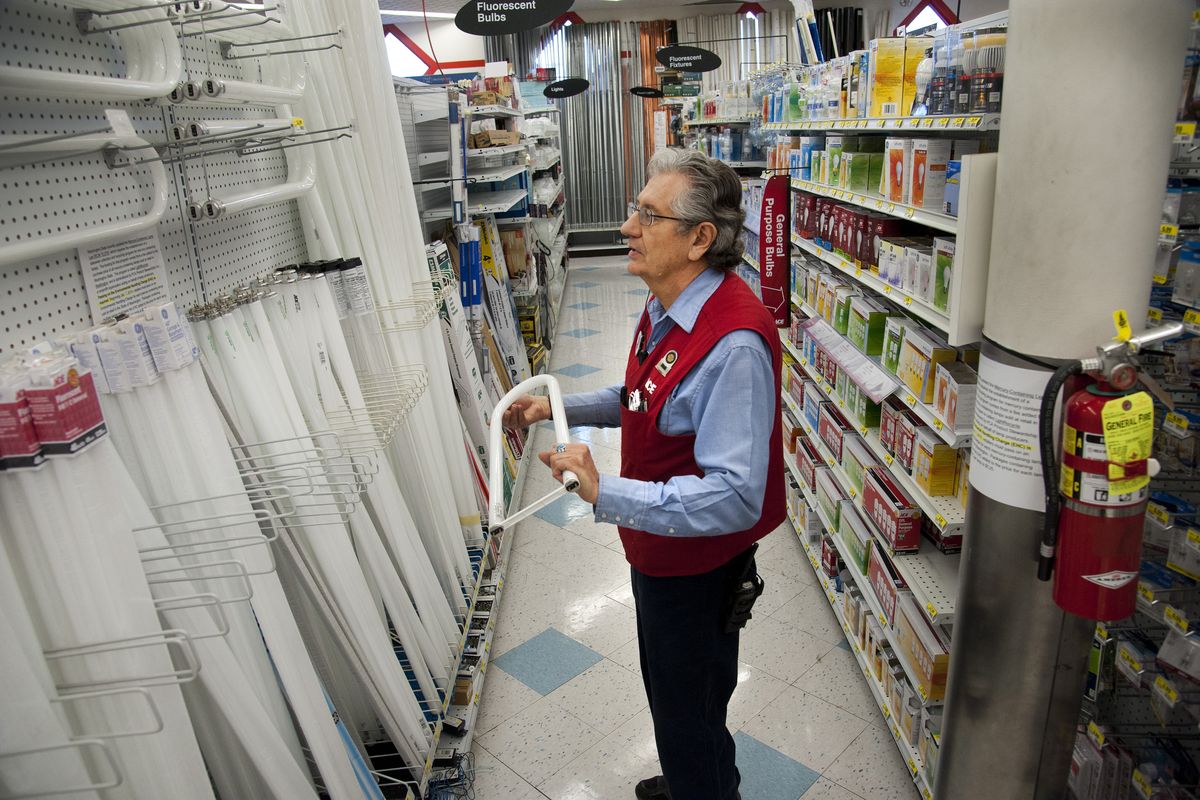Consumers can recycle fluorescent bulbs at local sites

Recycling fluorescent bulbs in Washington now is easier.
The state Ecology Department has named more than 130 sites – including five at Spokane County businesses – where consumers can drop off spent bulbs free of charge. Fluorescent lights are considered environmentally hazardous and state law says they must be recycled rather than thrown out.
The recycling program, called LightRecycle Washington, is funded through a 25-cent fee added to the cost of new fluorescent bulbs.
The program is designed to corral bulbs containing mercury – a potent neurotoxin that can escape when the bulbs are broken. Collected bulbs will be shipped to EcoLights Northwest, a Seattle company that breaks them down into reusable materials.
“We run them into a machine that smashes the lamps and separates the glass tubes from the aluminum end caps, and then removes the hazardous mercury phosphor powder,” EcoLights Northwest co-owner Craig Lorch said.
The powder that coats the inside of the fluorescent tubes is sent to another facility which extracts the mercury for reuse. Much of the cleaned glass is used to make concrete, while the aluminum parts are sold as scrap metal.
“This is the smartest approach to how to handle this kind of waste,” Lorch said.
Previously, the options for recycling mercury-containing bulbs were less accessible: EcoLights and a handful of other companies offer mail-in recycling programs, and some local governments run what the Ecology Department calls “moderate-risk” waste facilities that would take the bulbs.
“What this program does is make (recycling) available to residents and small businesses,” Lorch said.
EcoLights, which began recycling lights in 1996, has seen decent recovery rates from larger businesses, “but we’ve never got but a small fraction of lamps back from residents,” Lorch said.
To prevent small collection sites from being inundated, consumers may bring in no more than 10 lights per day.
Technically, consumers have been banned from disposing of fluorescent bulbs with their garbage since 2010, but there was no penalty and no easy alternative. The state required recycling of the bulbs in 2013, but the program that started on New Year’s Day provides the first easy way to do that.
While consumers will pay a 25-cent handling charge with each bulb they buy, light manufacturers will cover some of the cost of recycling under “product stewardship” laws.
“They’re not happy that they have to pay the extra 25 cents, but then they’re usually understanding of the program,” said Rick Lamb, manager of the Batteries Plus Bulbs store at 7704 N. Division St. in Spokane, a registered collection site.
Lamb, like other store managers in the area, said he expects more customers to bring in spent light bulbs once the program gains traction.
“I think it’s really a matter of getting the word out,” said Kevin Sellers, manager of the Spokane Valley Ace Hardware at 15405 E. Sprague Ave. “We had a lot of customers who would take in a light bulb. Now, we actually have a program that we can pitch to people.”
A map of registered collection sites and accepted light bulb types can be found at lightrecyclewa.org. Additional collection sites are expected to sign on to the program in the months ahead.